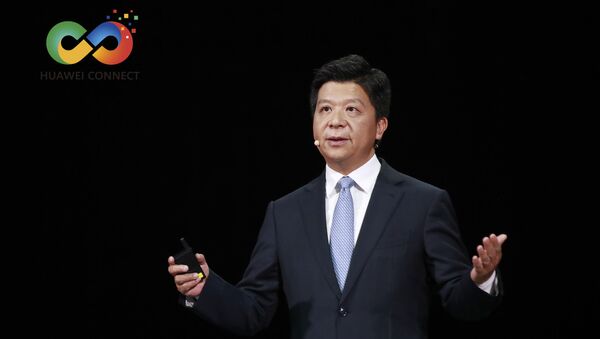Huawei Technologies will work with partners to build new information communication technology (ICT) systems via five tech domains as part as the company's next phase of growth, rotating chairman Guo Ping said in a speech on Wednesday.
Speaking at the Huawei Connect event, he discussed how five domains - networking, computing, cloud service, artificial intelligence (AI) and industry applications - would help firms increase business and governments to reach strategic goals.
"As more and more governments and enterprises go digital and embrace intelligence, the ICT sector will see incredible potential for growth. We look forward to opening this new chapter together with our partners." he said.
Services such as "ubiquitous" gigabit access to the internet would boost networks to boost business systems of governments and enterprises, he said.
The Shenzhen-based firm had also established cloud services in 23 regions globally for 1.5m developers, and aimed to integrate AI into major businesses systems of government and enterprises, he said.
Chen Jinzu and Tang Shaojie, general managers for the Shenzhen Airport Group and Shenzhen Metro Group, respectively, joined the event by sharing their experiences in building smart airport and metro systems.
"Huawei will generate the power, and our partners can harness it. Together, we will succeed and create greater value for our customers," he concluded.
The event is taking place in Shanghai from 23 to 26 September and explores trends in industry digitisation as well as navigating changes in the IT industry. The tech giant revealed a strategy in 2016 to build a digital ecosystem inspired from similar environments in Costa Rica, leading to further gains in cloud services in 2017 and AI in 2019.
The news comes after Huawei announced at the Huawei Developers Conference a major alliance for its Huawei Mobile Services (HMS) platform, with 12 key Chinese tech firms joining the initiative.
But Huawei responded by reducing its dependence on US tech companies with its HMS platform and HarmonyOS operating system, which aim to replace Google Mobile Services, Android and Microsoft Windows, among others by 2021.
China's State Council has also launched a $1.4tn initiative to fund domestic technologies such as AI, infrastructure, mainland chipmakers and others, and will reveal further details in the government's 5-Year-Plan in October.




